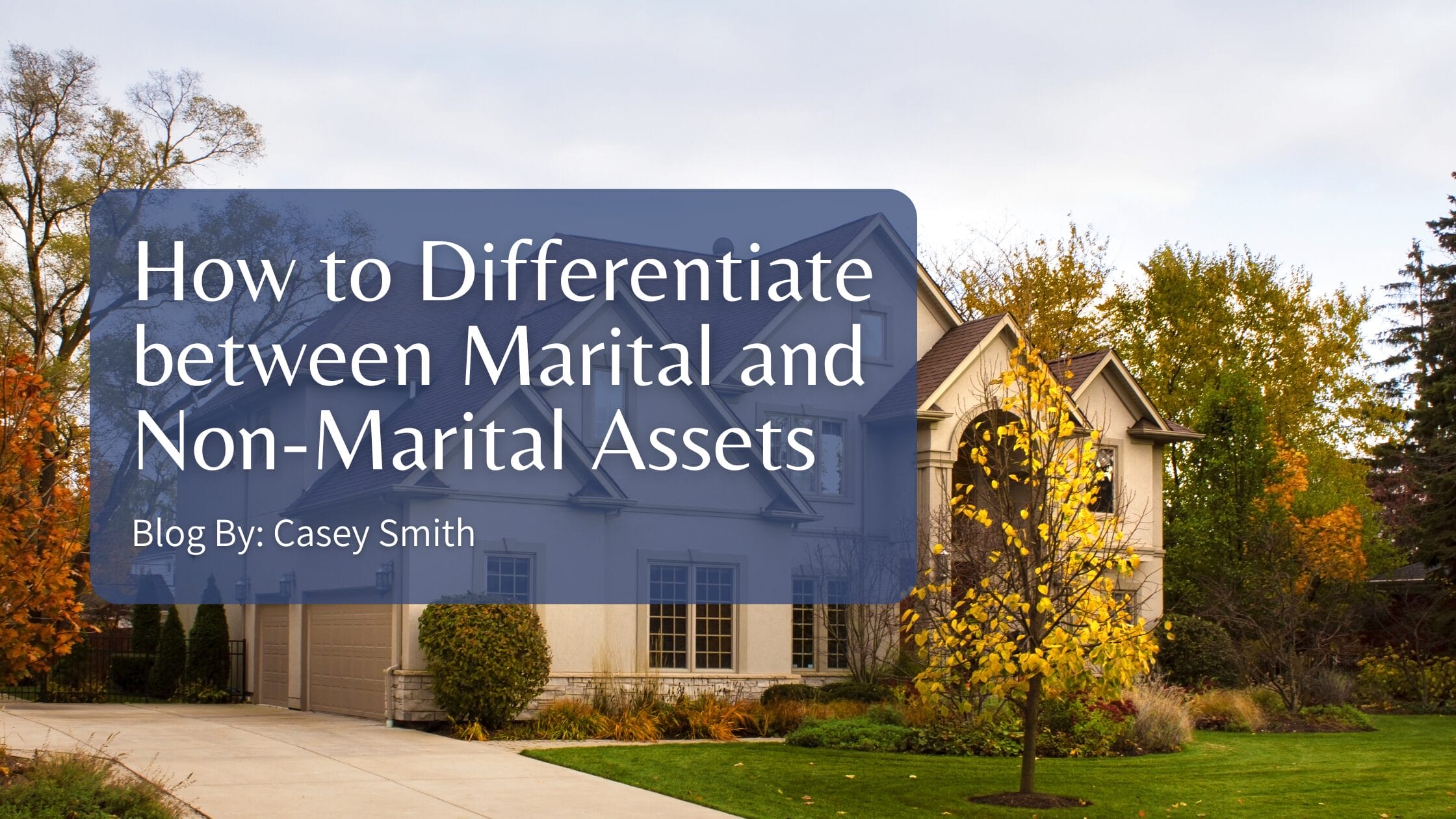How to Differentiate between Marital and Non-Marital Assets

In the realm of family law, understanding the distinction between marital and non-marital assets is crucial, especially when navigating the complex waters of divorce. The division of assets can significantly impact each party’s financial future, making it essential to comprehend what constitutes marital property and what falls into the category of non-marital or separate property. This blog aims to shed light on these differences, offering clarity and guidance for those facing such dilemmas.
Understanding Marital Assets
Marital assets, also known as community or joint property, refer to the property and income acquired by either spouse during the marriage. The definition of marital assets can vary by jurisdiction, but they generally include:
- Income earned by either spouse during the marriage
- Homes and other real estate acquired during the marriage
- Retirement accounts and pensions funded during the marriage
- Vehicles, furniture, and other tangible items purchased during the marriage
- Investments and business interests developed during the marriage
The guiding principle is that these assets are considered the joint property of both spouses, irrespective of whose name is on the title or who made the purchase. Upon divorce, these assets are subject to division under the laws of the state, which can either follow community property rules (dividing assets 50/50) or equitable distribution principles (dividing assets in a manner deemed fair, but not necessarily equal).
Identifying Non-Marital Assets
Non-marital assets, on the other hand, are those that belong solely to one spouse. These assets are typically not subject to division during a divorce and include:
- Property owned by one spouse before the marriage
- Inheritances received by one spouse, even if received during the marriage
- Gifts given specifically to one spouse (not including gifts from the other spouse)
- Personal injury awards received by one spouse
- Assets designated as non-marital through a prenuptial or postnuptial agreement
It’s important to note that the distinction between marital and non-marital assets can become blurred. For example, if non-marital property is commingled with marital property, it may lose its separate status. An example of this would be inheriting a sum of money (non-marital) and then depositing it into a joint bank account (marital), which could potentially make it subject to division upon divorce.
Tips for Differentiating Between Marital and Non-Marital Assets
- Documentation is Key: Keep thorough records of all assets acquired before and during the marriage, including documentation that clearly shows the source of the assets.
- Understand State Laws: Since laws vary by state, familiarize yourself with your state’s specific regulations regarding marital and non-marital property.
- Consider a Prenuptial or Postnuptial Agreement: These agreements can specify what happens to certain assets in the event of a divorce, helping to protect non-marital assets.
- Avoid Commingling Assets: To maintain the non-marital status of an asset, avoid mixing it with marital assets. For instance, keep inherited funds in a separate account.
- Consult with a Professional: A family law attorney can provide invaluable advice tailored to your specific situation, helping to ensure your assets are protected.
Differentiating between marital and non-marital assets is a nuanced process that requires careful consideration and, often, professional guidance. By understanding the basic principles and taking steps to clearly define and separate your assets, you can navigate the division of property during a divorce more smoothly and with greater confidence in the protection of your financial interests.
Have more questions? Contact Us
Casey Smith
President, Wiser Wealth Management
Share This Story, Choose Your Platform!
Wiser Wealth Management, Inc (“Wiser Wealth”) is a registered investment adviser with the U.S. Securities and Exchange Commission (SEC). As a registered investment adviser, Wiser Wealth and its employees are subject to various rules, filings, and requirements. You can visit the SEC’s website here to obtain further information on our firm or investment adviser’s registration.
Wiser Wealth’s website provides general information regarding our business along with access to additional investment related information, various financial calculators, and external / third party links. Material presented on this website is believed to be from reliable sources and is meant for informational purposes only. Wiser Wealth does not endorse or accept responsibility for the content of any third-party website and is not affiliated with any third-party website or social media page. Wiser Wealth does not expressly or implicitly adopt or endorse any of the expressions, opinions or content posted by third party websites or on social media pages. While Wiser Wealth uses reasonable efforts to obtain information from sources it believes to be reliable, we make no representation that the information or opinions contained in our publications are accurate, reliable, or complete.
To the extent that you utilize any financial calculators or links in our website, you acknowledge and understand that the information provided to you should not be construed as personal investment advice from Wiser Wealth or any of its investment professionals. Advice provided by Wiser Wealth is given only within the context of our contractual agreement with the client. Wiser Wealth does not offer legal, accounting or tax advice. Consult your own attorney, accountant, and other professionals for these services.





